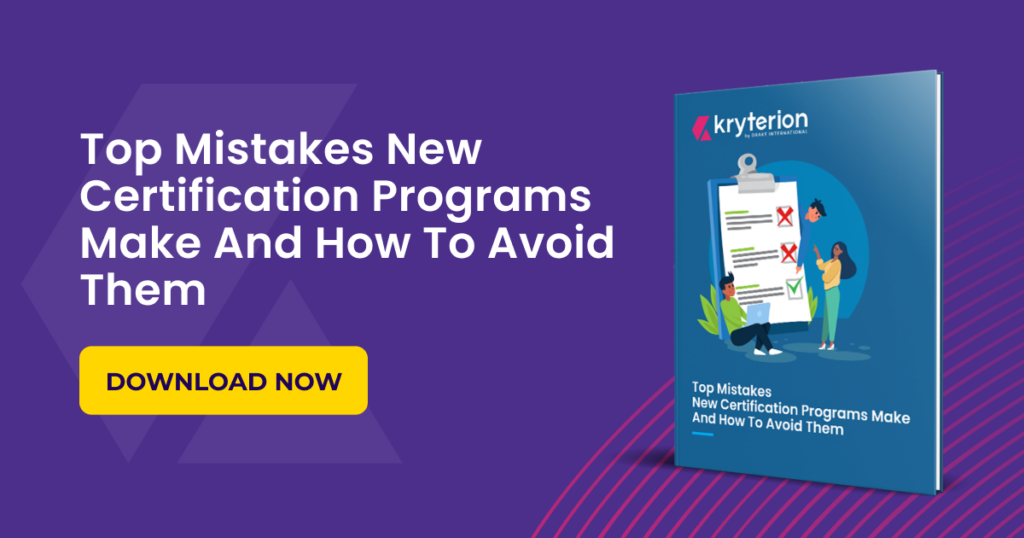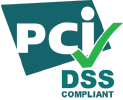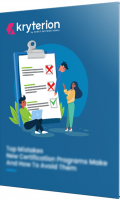This week, we continue exploring new insights in learning, memory, retention and test-success strategies. These intriguing, often counter-intuitive, findings from cognitive science—which studies the mind and its processes—may radically change the way you think about test preparation. Read on to get really smart about your next test, which might just be a credentialing exam!
ABOUT THE AUTHOR:

Many are unaware that after his success in the hit Hollywood movie, Big, co-starring Tom Hanks, the widely traveled, mechanical Romanian seer, formerly known as Zoltar, never again found a truly satisfying role in Hollywood.
Rather than live marooned in the shadow of his own fame, Zoltar returned to school. After earning an advanced degree, he re-emerged as Dr. Z, an international skills-development consultant with a passion for career development.
In this post, he shares the results of late-breaking research into learning, memory and testing for certification- and licensure-exam candidates. He also discusses techniques known to enhance the testing experience of candidates for Kryterion-delivered exams.
Thank you, Dr. Z…and we still love those shades!
We just wanted to remind you that we’re presenting these new scientific insights in the form of 11 multiple-choice questions. Two weeks ago, we discussed questions 1-4 here. Last week we covered questions 5-8 here. This week we conclude with questions 9-11.
9. You’re involved in a self-study process and using practice tests. After you complete a practice test, the normal tendency is to check your responses against the answer key or the course material right away. Will checking right away enhance your performance on the exam later?
- Yes
- No
- Yes, for STEM questions
- Yes, for True/False questions
Correct response: B
Multiple studies have shown that delaying corrective feedback, however uncomfortable, improves subsequent performance. And not just in lab tests. A 2014 study of participants in an advanced college engineering course demonstrated that delaying feedback for one week led to better performance on subsequent exams!
When surveyed, the participants involved felt that immediate feedback was more beneficial. Just another example of how counterintuitive the best learning practices can be.
Caveat: Immediate feedback is preferable when learners lack foundational information about the material.
10. Which of the following techniques has been shown to be most effective when it comes to remembering fresh, fact-based material?
- Rereading
- Note-taking
- Writing down as much as you can recall without peeking

One remarkable study compared three learning approaches. Rereading a science text four times. Rereading it three times followed by a free recall test. And reading it once followed by three back-to-back free recall tests. (Each test involved writing down everything the participants could remember from the text.)
In an exam conducted five minutes later, participants who reread the material four times did best. Next came the participants that reread it three times and took the free recall test. In last place were those who read the material once and retested multiple times. But wait. On a final exam, a week later, the results were reversed. The participants with the least exposure to the material recalled it best, thanks to the repeated free recall tests.
11. Which of the following supplements has research shown to be helpful in improving cognition?
Correct response: A, C & D.

What you feed your brain makes a difference. A high-fat diet can impair memory and attention within a week.
Micronutrient deficiencies are surprisingly common. “Healthy” individuals with micronutrient deficiencies may experience “dulled” cognition and think it normal.
A 2019 study tested 60 healthy adults and found, among other things, that the group was deficient in 9 of 16 nutrients, based on recommended daily intake. After just eight weeks of multi-vitamin, Vitamin D and Vitamin C supplementation, respectively, all groups demonstrated cognitive improvement. Please note: The multivitamin and Vitamin D groups showed improvements in overall IQ.
In 2013, a six-month, placebo-controlled and double-blind Australian study of 228 healthy young adults tested the impact of 1.16 grams of DHA taken daily on cognition. This dose equates to two or three portions of fish a week.
Per the study…”DHA supplementation improved memory and RTs (response time) of memory in healthy young adults whose habitual diet was low in DHA.” The accuracy of episodic memory improved in women. Working memory response times improved in men. Episodic memory response time improved for both genders.
Their brains were more efficient and performed better.
Conclusion
How you scored on this short, 11-question exam isn’t anyone’s business. What matters is whether you make it your business to evaluate these evidence-based insights and put them to good use.
None of them are hard to implement.
Smart, proactive steps toward testing success beat wishful thinking hands down.
Final Words…
Dr. Z brings timely, valuable—often intriguing— insights about learning, retention and testing, especially for those with an exam in their future.
The recent corpus of scientific research in the cognitive sciences not only impacts test candidates. It also has implications for the field of test development.
If you’re a stakeholder in a credentialing program and have questions about, or simply want to discuss, your own existing or future credentialing exam, feel free to schedule a free, no-obligation call with one of friendly Kryterion psychometricians.
Just fill out our short form here to give us a bit of context, and we’ll follow up via email to arrange a convenenient call time. Talk soon!








